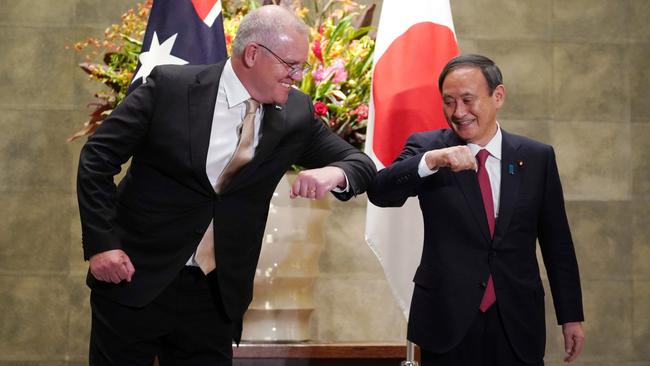
Although the RAA formally covers the relatively unlikely eventuality of Australian service personnel getting into legal trouble in Japan, and vice versa, the fact that the only other nation with which Japan has a comparable agreement is the US demonstrates its historical significance.
This is an immensely important short trip by Mr Morrison. That he will need to undertake a fortnight of quarantine in the Lodge when he gets back indicates its importance. The Japanese are fully aware of this and appreciate it. They, too, are using the trip to make a statement. The Australian PM is the first foreign leader to visit Mr Suga since he took over from the master strategic chess player Shinzo Abe in September.
Tokyo and Canberra are, bit by bit, inching ever closer to a full military alliance. It’s not there yet, and it would be wrong to misrepresent it. But it’s getting very close.
Australia and Japan, in their common alliance with the US, are as near to an Asian NATO as it gets. Japan is the only nation with which Australia has a Special Strategic Partnership. Canberra ranks this style of partnership as one rung up from a Comprehensive Strategic Partnership (which, ironically we have with Beijing, among others), and just below a formal military alliance.

Japan and Australia are also working directly at the foreign minister level to extend to Australia the recent provisions of Japan’s Self-Defence Law, which lets Japanese Self-Defence Forces militarily assist the forces of another country in activities that contribute to the defence of Japan.
This law was passed in order to enable Japan to engage in a degree of reciprocity in its military alliance with the US. Such reciprocity had been previously considered illegal under Japan’s war-renouncing constitution.
Making such a change was a huge geopolitical decision by Japan, involving not only its political class but the whole nation. And it reflects, as do all these moves, the deep and growing security concerns which Japan feels about the actions of China.
Mr Morrison’s one-day stop was very full, and rightly so. He spent Tuesday morning talking to Japanese businesses and also discussing climate change.
This was a good use of his time, for several reasons. It would be quite wrong to entirely militarise the presentation of the Australia-Japan relationship. It is a broad relationship and Japan, the world’s third-largest economy, remains a key trade and investment partner for Australia, as well as a political and cultural friend.
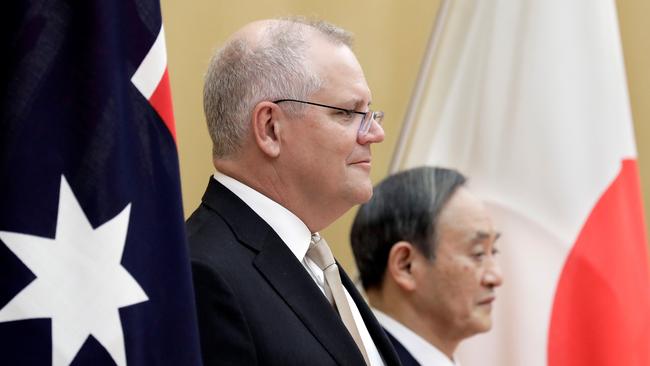
It is important always to represent the breadth of the relationship, which is Australia’s closest (with the possible exception of Singapore) in Asia.
Japan has a notional target of achieving net-zero emissions by 2050. It is impossible to imagine that this will actually be achieved as three quarters of Japan’s energy is provided by coal and gas.
Mr Morrison is right to resist signing up to such a target himself, and rather to say that Australia would like to get to zero emissions as soon as possible.
The unspoken final clause of that sentence is “without destroying our economy”.
His insistence that he won’t make a time-bound commitment until he can show how Australia will get there is an implicit criticism of other nations’ commitments, because they have certainly not shown how they will get there. But realpolitik dictates that a bit of this climate boogie dance is necessary.
Mr Morrison showed he can do the boogie dance as required, while not being distracted from the real business — which with Japan is vitally important.


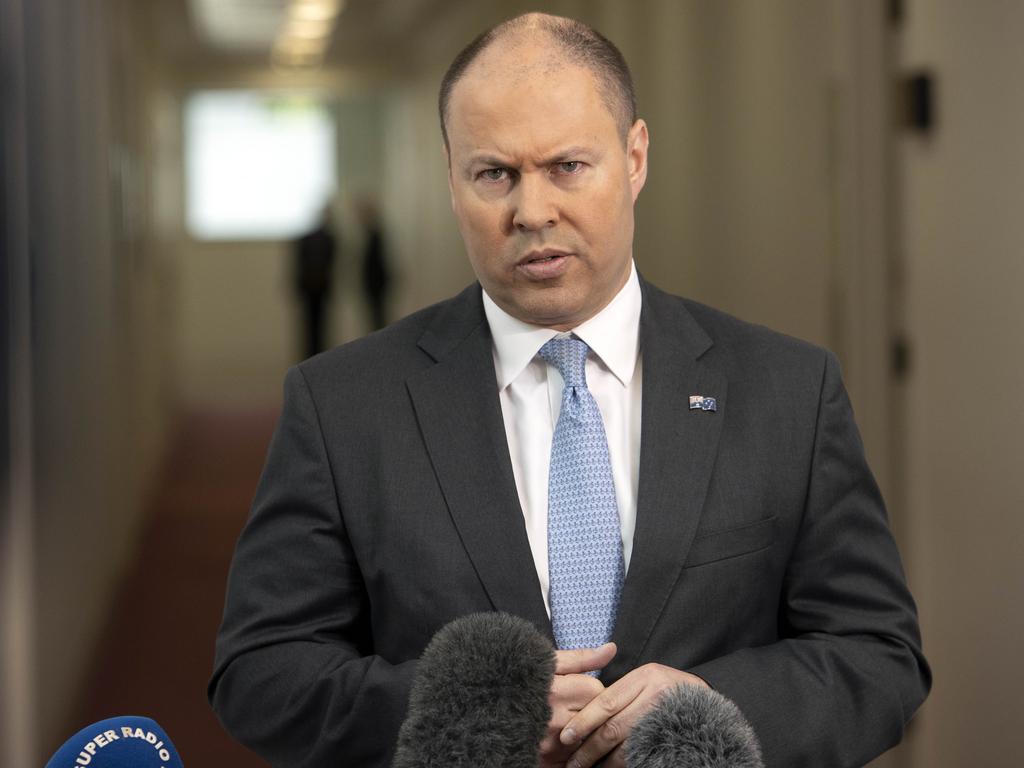
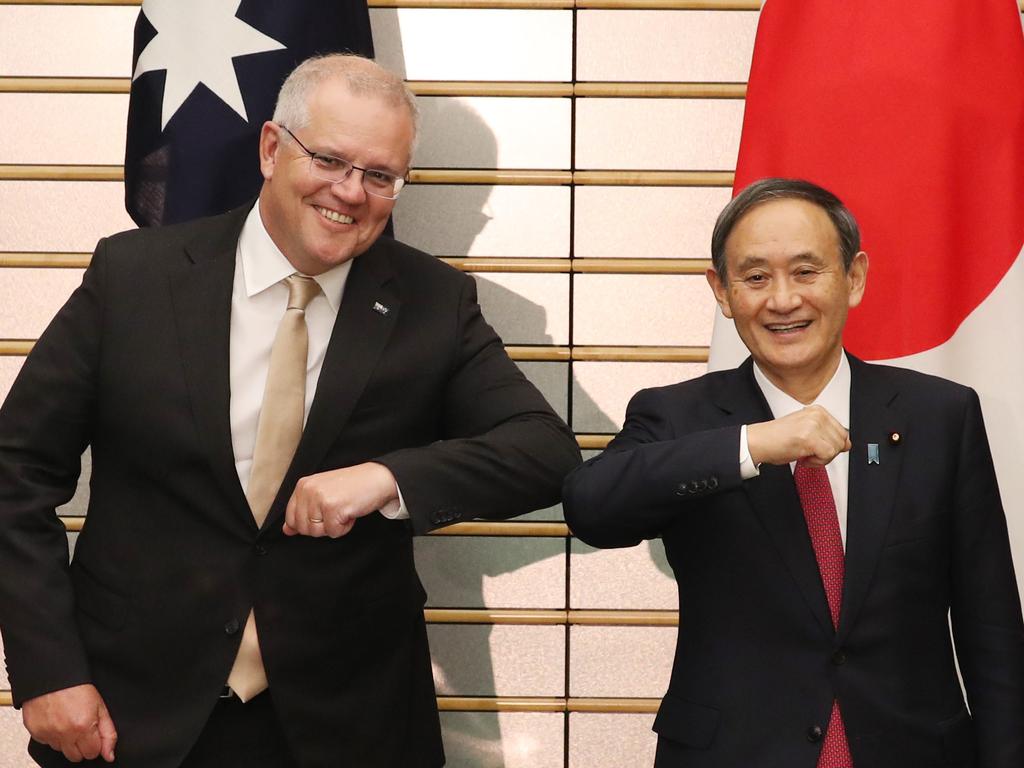


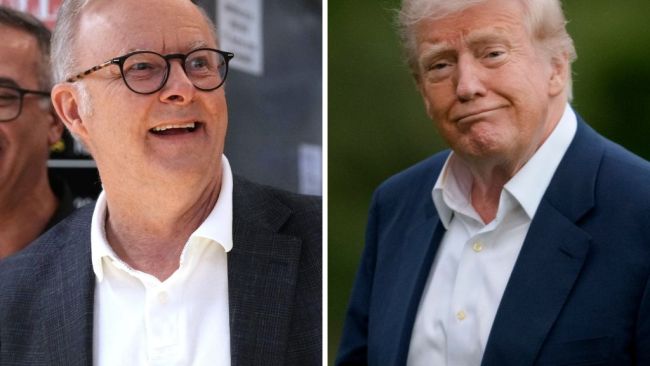
Scott Morrison edged history forward in Tokyo with the Reciprocal Access Agreement he and Japanese Prime Minister Yoshihide Suga agreed to in principle.